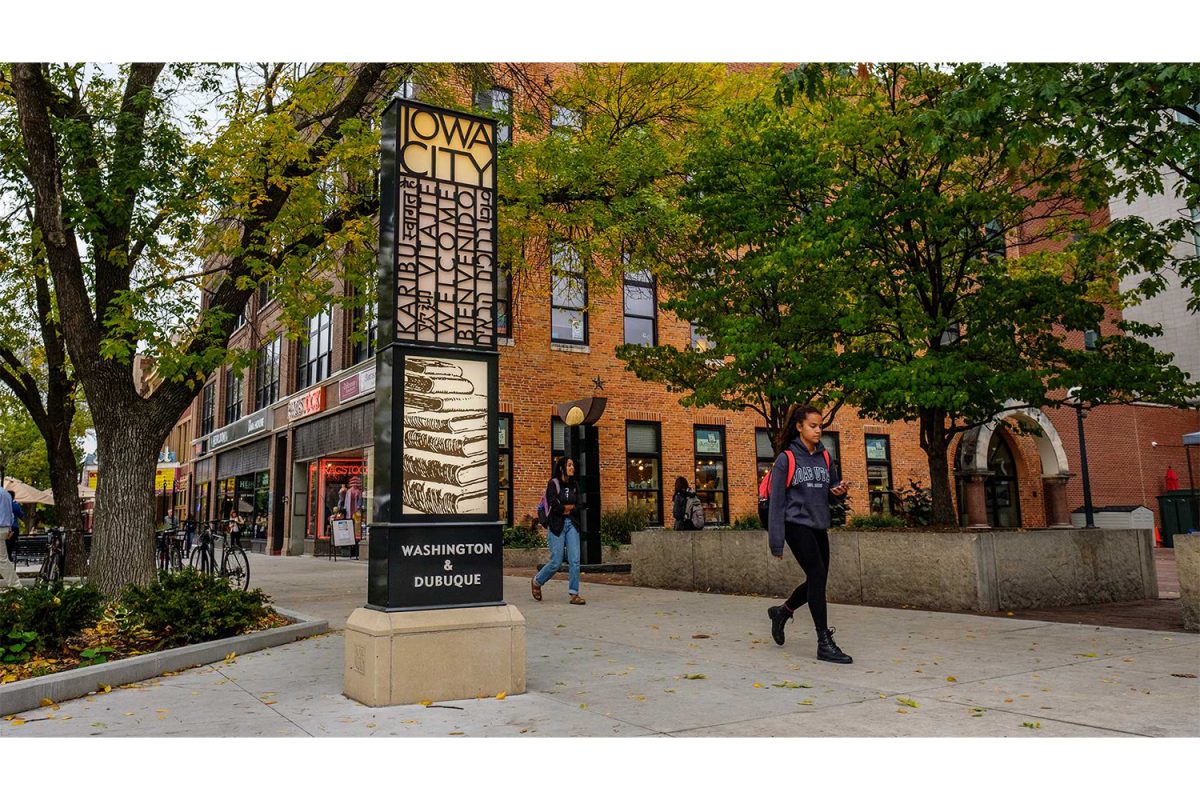As a student, you’ve probably wondered what the oddly shaped bronze panels are between the concrete slabs of the sidewalk on Iowa Avenue. But you’ve probably never given them a second thought. Some may stomp, slip, or slide right past them, but they are there for a good reason.
Each sculpted piece depicts a different literary or poetic text that refers to, was conceived in, or was written in Iowa. These metal plates and the entirety of the Iowa City Literary Walk are essential components of the artistic oasis that is Iowa City — a result of the town being dubbed a UNESCO City of Literature.
This label has transformed Iowa City into a hotbed of literary magic and enabled the University of Iowa to develop one of the best creative writing programs in the country.
Regardless of what students in the past may have thought, more people should take an interest in Iowa City’s designation as a UNESCO City of Literature to better understand and appreciate the abundance of history and art produced here — and to take advantage of opportunities that only a select few in the world are offered.
Since 2008, Iowa City has held the title of one of only 53 cities in the world to be a UNESCO, or United Nations Educational, Scientific and Cultural Organization, City of Literature. It was the first city in the United States to receive the prestigious title, with Seattle joining Iowa City in 2017.
Iowa City’s initial designation stems largely from the Iowa Writers’ Workshop and Iowa’s International Writing Program, which are, for those who don’t know, historical literary programs that allow writers from around the world to hone their skills and develop new material while staying in the confines of Iowa City. These long-standing institutions, established in 1936 and 1967, respectively, have produced multiple Pulitzer Prize winners and MacArthur Fellowship recipients.
Each program has transformed Iowa City into one the nation’s most important places for the written arts, permanently fostering a culture of love and appreciation for literature.
Because of this, the Iowa City of Literature website notes, “Iowa City, for its size, may be the most literary city on earth,” and it has been for writers “a haven, a destination, a proving ground, and a nursery.”
Another key piece of Iowa City’s literary scene that contributed to its UNESCO designation includes Prairie Lights Books and Cafe, a downtown staple since 1978, and the Iowa City Public Library, which according to UNESCO is the “busiest library building in the state per capita.”
These institutions have created a dream environment for authors and audiences alike, fueling Iowa City’s ever-evolving literary scene.
Thanks to Iowa City embracing its UNESCO designation, students and community members can enjoy niche experiences and opportunities unique to an official City of Literature. For instance, the Iowa City Book Festival every October and the Slam-O-Vision competition — described as “the spoken word version of Eurovision, where each city slams their way to the grand title Slamovision Champion!” — bring distinct character and charm to the city.
All in all, regardless of one’s reading style or preferences, Iowa City’s UNESCO City of Literature label makes reading, listening, and discussing literature fun for people of all ages. The historical background of events and places creates an eccentric environment for students and community members alike to enjoy — and more people should take advantage of it while they can.



